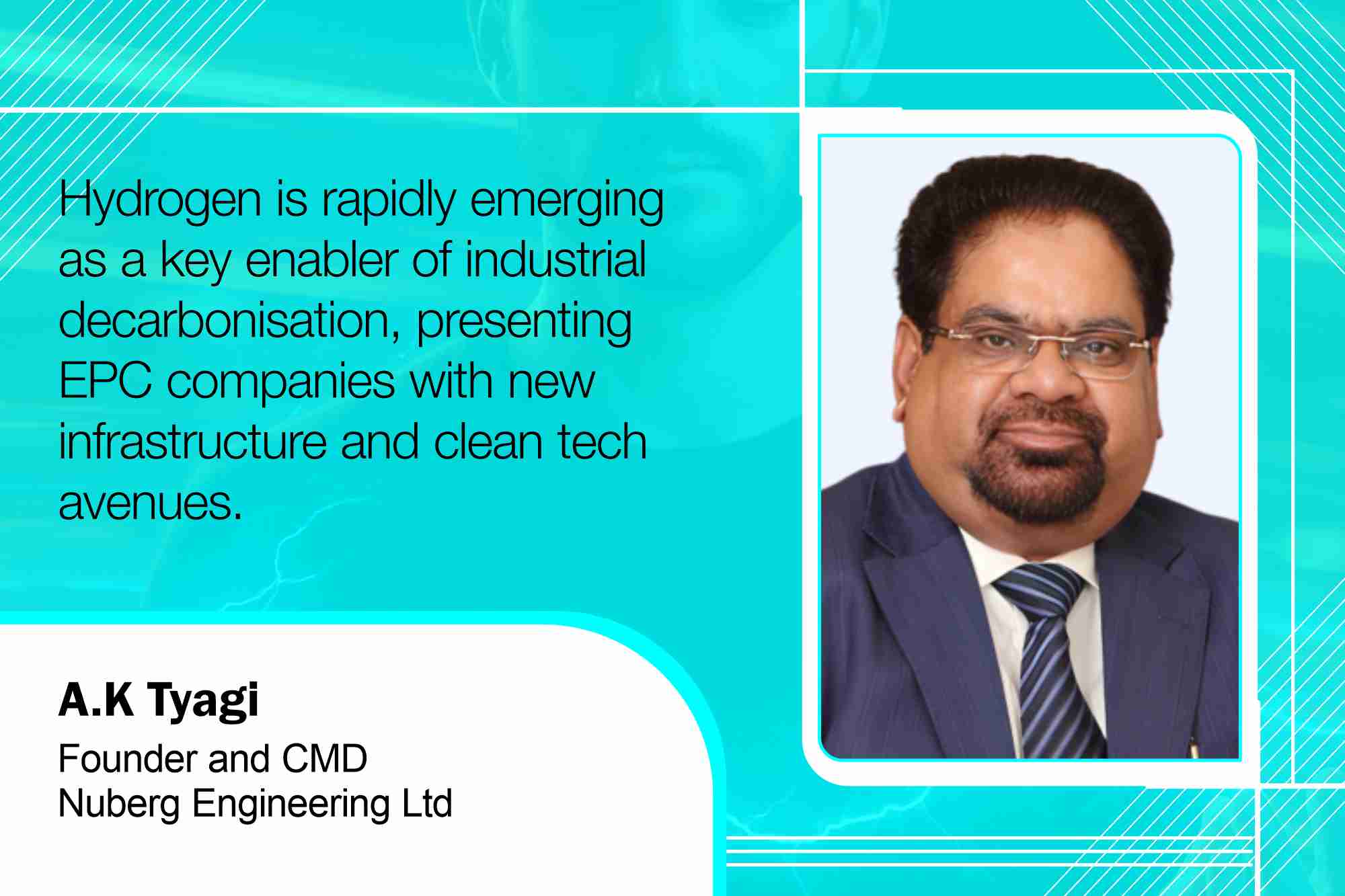Hydrogen tech sparks a clean shift in EPC project delivery
By Staff Report June 3, 2025 2:22 pm IST
By Staff Report June 3, 2025 2:22 pm IST

This shift translates into a surge in demand for expertise in designing, building, and commissioning hydrogen infrastructure, from production plants to storage, pipelines, and fuelling stations.
Hydrogen technologies are redefining the Engineering Procurement and Construction (EPC) industry. As a versatile energy carrier, it can address key challenges. However, it is still mostly used in refining and chemicals, and production mainly from fossil fuels like coal and natural gas causes significant CO₂ emissions.
When produced from renewable, nuclear, or low-carbon fossil sources, hydrogen can help decarbonise heavy industry and long-distance transport. It also supports variable renewables integration in the electricity system, as it allows for energy storage over weeks or months, making it a unique option for reducing emissions.
As global economies accelerate their transition toward net-zero emissions, EPC companies face a dynamic landscape filled with complex challenges and strategic opportunities. Drawing experience at Nuberg EPC, the author sees hydrogen technologies as a key pillar shaping this evolving future.
Game changer for EPC companies
Hydrogen is rapidly emerging as a key enabler of industrial decarbonisation, presenting EPC companies with new infrastructure and clean tech avenues. This shift translates into a surge of demand for expertise in designing, building and commissioning hydrogen infrastructure from production plants to storage, pipelines and fuelling stations.
EPC contractors are now integral to the hydrogen value chain, offering end-to-end solutions in feasibility studies, engineering, procurement, construction, and commissioning. Their ability to streamline project execution, manage risks and ensure regulatory compliance is critical for the timely and cost-effective deployment of hydrogen projects.
EPC companies now actively deliver a broader suite of green hydrogen solutions alongside traditional hydrogen infrastructure. This includes the development of green hydrogen plants powered by renewables, advanced balance of stack and balance of plant systems for efficient operations and enabling hydrogen mobility for clean transport. Their expertise extends to compressed biogas (CBG) and bioethanol projects, further diversifying the renewable energy mix. In addition, EPC capabilities now encompass the production of green hydrogen-based chemicals such as green ammonia and green methanol, emerging as sustainable alternatives for fertilisers, fuels and industrial feedstocks.
For example, during the work on the IOCL green hydrogen station in Vadodara, Nuberg designed and implemented advanced hydrogen production and storage systems that integrated renewable energy to create scalable infrastructure for decarbonising transport and industry. Across global projects, the firm applies in-house expertise and partnerships with trusted technology providers to deliver solutions in green, grey and blue hydrogen; 2G and 3G ethanol; water electrolysis; and nutrient technologies.Key Trends Shaping Hydrogen
Integrating green hydrogen and renewable energy is crucial. India aims to increase its renewable energy installations to 500 GW by 2030 and produce 5 MMT of green hydrogen using 125 GW of renewable energy. EPC firms are developing and overseeing complex systems for large-scale production.
Electrolyser and fuel cell technologies have seen significant efficiency gains, with the cost of hydrogen from electrolysis dropping by nearly 60 percent since 2010.
Modularisation and digitalisation techniques are gaining traction, enabling faster, more cost-effective deployment of standardised hydrogen plant components. Digital technologies—AI, IoT, and big data analytics—are further enhancing productivity, safety, and transparency across project life cycles, allowing EPC contractors to optimise design, procurement, and construction processes.
Sustainability and Compliance are becoming a key focus in EPC projects. These firms incorporate sustainability principles into project planning and implementation to ensure compliance with evolving safety and environmental regulations.
There are opportunities abound for EPC firms, mainly due to India’s National Green Hydrogen Mission and global interest in green hydrogen. Companies can lead the integration of renewable-hydrogen systems and deploy Solid Oxide Electrolysis Cells (SOEC) and Proton Exchange Membrane (PEM) technologies for efficiency and flexibility.
We use cookies to personalize your experience. By continuing to visit this website you agree to our Terms & Conditions, Privacy Policy and Cookie Policy.